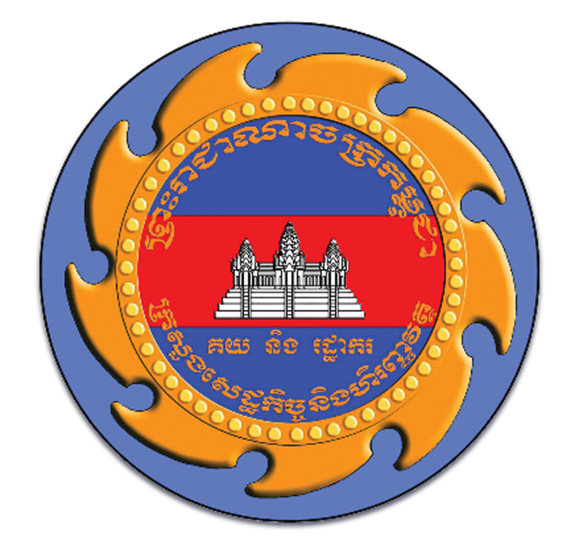Issue Description
The acceleration of international trade and Cambodia’s integration into global supply chains have been fundamental drivers in the Kingdom’s continued economic expansion, with an impressive average annual GDP growth of 7% between 2009 and 2019. Post-COVID-19, the economy has continued to grow, by 5.2% in 2022. The surge in cross-border trade has placed increasing demands on the resources of the General Department of Customs and Excise(GDCE), due to the complexity of Customs procedures required to facilitate the transfer of goods in and out of the country.
World Customs Organisation (WCO) guidelines suggest that Customs authorities categoriseincoming shipments into the following categories for clearance purposes: documents/correspondence, De Minimis, low-value, and high-value consignments. Each of thesecategories has different documentation requirements. Although we recognise the RoyalGovernment of Cambodia’s energetic efforts in speeding up Customs processing times,including by formally adopting these guidelines, we have reports from our members in the logistics sector, of such guidelines not being implemented by officials at border crossings.
Reportedly, these officials are not distinguishing between different types of cargo, value, size, or expedited shipping services for international consignments, other than for shipments under the declared value of USD 50, following the successful implementation of the De Minimis regime in 2018. This means that the level of documentation required by officials to process and release goods is the same for any weight and value above USD 50, e.g. three document sets for master airway bill, house airway bill, invoice and packing list, business registration, value-added tax (VAT) certificate, and a letter of authorisation.
The lack of practical differentiation between types of shipments for Customs clearance raises questions concerning the efficient cross-border movement of goods. Smaller and lower-valued shipments—typical for e-commerce users, for example—are expected to receive the same level of scrutiny from Customs as higher-value shipments, despite their risk being lower. This causes particular issues for consignments sent via express or airfreight, as segregation for
these services is similarly unavailable, often resulting in a delayed release as clearance cannot be expedited and companies must submit the same lengthy documentation as other forms of shipping.
Cambodia’s current challenges in processing times are reflected in the country’s internationallogistical rankings. The World Bank’s 2022 Logistics Performance Index (value from 1 to 5, with 5 being the highest) saw Cambodia lag behind Thailand, Vietnam and Lao PDR on two key indicators: “Efficiency of Customs clearance processes” and “Frequency with which shipments reach the consignee within scheduled or expected time”, with scores of 2.2 and 2.7, respectively. The country fared slightly better on Overall Performance, still behind Thailand and Vietnam but tied with Lao PDR at 2.4. In addition, a 2018 estimate indicated logistics costs over sales in Cambodia at 20.5% in 2018, higher than Thailand and Vietnam.
Impact on business
Simplified customs clearance procedures are important for ensuring the efficient and timely movement of goods in and out of Cambodia.
The lack of simplified customs clearance procedures in Cambodia can have several detrimental impacts on the logistics and trade industry. Firstly, it can result in increased delays for shipments, which can have a cascading effect on the entire supply chain, leading to lost sales, decreased customer satisfaction, and increased inventory holding costs.
Secondly, the lack of simplified Customs clearance procedures can increase logistical costs for businesses. This is because customs Clearance procedures often involve complex documentation and lengthy bureaucratic processes, which can result in additional fees and charges for businesses. These costs can ultimately be passed on to consumers, leading to increased prices for goods and services.
Thirdly, the lack of simplified Customs clearance procedures can result in reduced revenue for Customs. This is because delays and inefficiencies in the Customs clearance process can result in reduced volumes of goods being cleared, leading to a decrease in Customs revenue.
Lastly, the lack of simplified Customs clearance procedures can reduce overall business competitiveness in Cambodia. This is because it can deter foreign investment, limit export opportunities, and make it more difficult for businesses to operate efficiently in the country.
In today’s globalised economy, businesses need to operate efficiently and effectively to remain competitive, and the lack of simplified customs clearance procedures can hinder this.
Recommendation
- Continue simplifying Customs clearance procedures.
Whilst acknowledging the Royal Government of Cambodia’s efforts in speeding up Customs procedures, we would respectfully recommend that it continue engaging in tackling the remaining bottlenecks, by:
– considering the promulgation of a Prakas specifically dealing with express clearances. The Prakas would recognise the unique nature of express goods and the need for them to be treated differently from general cargo for Customs purposes, as enunciated for example in the WCO Immediate Release Guidelines;
– separating procedures for returned good consignments (for example, those deriving from e-commerce) from general cargo and simplifying said procedures, in recognition of their different nature from general cargo, particularly the temporary nature of storage in Customs bonded facilities;
– increasing the De Minimis shipment threshold to a value between USD 300 and 500;
– streamlining processing and approval steps for high-value clearance shipments.
Simplifying Customs clearance procedures in Cambodia can help the overall business environment by reducing the time and cost of importing goods, increasing trade, and improving the competitiveness of Cambodian businesses.
Royal government of Cambodia
Initiative from Eurocham: The issue has been raised by the Transport & Logistics Committee within The White Book edition 2024 in the Recommendation No. 1.

The GDCE invited EuroCham to a consultation workshop on the Draft Guideline on Procedures for Managing Postal, Express Delivery and Cross Border E-Commerce. The workshop took place on the 10th of June 2024.
Initiative from Eurocham: EuroCham attended the consultation workshop on June 10th represented by Mr. Bunthan Suy, Chairman of the Transports & Logistics Committee. During this meeting, EuroCham emphasized the integration of the Customs Valuation and Data System (CDVS) into the ASYHUB and the need for a clear Return to Origin (TRO) process in the Standards of Procedures for Postal, Express Delivery and Cross-Border E-Commerce.

On the 11th of June 2024, the GDCE issued the SOP guidelines for the management of Postal, Express Delivery and Cross-Border E-Commerce.
You can find the SOP via this LINK.
Initiative from Eurocham: EuroCham sent a letter to the GDCE following up on the points raised during the workshop. The letter emphasizes the importance of integrating ASYHUB data with CVDS for customs valuation and the need to outline a simplified Return to Origin (RTO) process in the Standard Operating Procedure (SOP).
You can find the letter HERE.

On 4th of July, 2024, the GDCE convened a meeting with the committee to discuss the technical issues faced by the operators. The GDCE confirmed that the CVDS is now included into the ASYCUDA and now working on its integration into the ASYHUB System.
Initiative from Eurocham: At the occasion of the 1st Europe-Cambodia Public-Private Sector Dialogue on September 17, 2024, the issue of high logistics costs in Cambodia and the difficulties of cross-border trade was raised. These unreasonable and cumbersome processes are seriously hindering the ability of SMEs to scale and succeed, as their ability to export and import is hampered by cross-border bureaucracy.

In reply, H.E. Sun Chanthol requested EuroCham to list the underlying issues that generate these cumbersome processes and costs. The objective was to work on these underlying issues with the relevant authorities and to follow up on them for the next Europe-Cambodia Public-Private Sector Dialogue.
Initiative from Eurocham: At the occasion of the courtesy meeting between EuroCham and Prime Minister Hun Manet on September 19, 2024, this topic of high logistics costs and the cumbersome processes was raised by Mr. Tassilo Brinzer, Chairman of EuroCham Cambodia.

Prime Minister Hun Manet acknowledged the challenges related to the cumbersome processes and suggested EuroCham Cambodia list their recommendations and work with Neak Oknha Rithy Sear, an advisor to the government.
Following the meeting with the Prime Minister and the 1st Europe-Cambodia Public-Private Sector Dialogue, EuroCham and its Transports & Logistics Committee issued a letter to the relevant ministries requesting a high-level intervention.
You can find the letter here.

The General Department of Customs and Excise (GDCE) invited EuroCham for a meeting to discuss challenges and solutions for Cambodia’s logistics sectors and customs processes on the 19th of November.
During this meeting the GDCE informed that they are currently drafting detailed instructions on the Return to Origin procedure. Recognizing the importance of international best practices, the GDCE requested further study on the management of export and re-importation statistics related to Low De minimis in other countries.
The meeting also saw a significant agreement between the GDCE and EuroCham Cambodia. Both parties will collaborate to develop a Memorandum of Understanding (MoU) or standard operating procedures that will empower express operators to clear goods on behalf of their customers without the need for a Power of Attorney (PoA). This MoU will clearly define the responsibilities of declarants (express operators) in accordance with existing laws and regulations.

The Council for the Development of Cambodia (CDC) has extended an invitation to EuroCham to deliver a presentation at the 7th session of the National Logistics Council, scheduled for the 16th of December 2024, focusing on the transport and logistics challenges encountered by businesses within Cambodia.
EuroCham Cambodia attended the 7th session of the National Logistics Council to introduce the challenges for business operation in Cambodia’. EuroCham representatives emphasized the need for Cambodia to enhance its logistics infrastructure and streamline processes to become a more competitive and attractive destination for businesses, aligning with the Prime Minister’s vision of establishing Cambodia as a regional logistics hub for the sub-Mekong region. During the meeting, EuroCham broke down the list of requirements to ensure the clearance procedures and the 25 papers needed.
You can find the presentation HERE.
On January 14, 2025, during a courtesy meeting with H.E. Prof. Bundit Sapheacha Dr. Sok Siphana, Committee Chairman Mr. Bunthan Suy raised concerns about cumbersome customs clearance procedures and a lack of infrastructure.
He explained the bureaucratic hurdles and the associated costs of compliance, emphasizing that these factors do not encourage compliant practices.

In response to the issues raised by EuroCham during the Courtesy meeting, H.E. Prof. Bundit Sapheacha Dr. Sok Siphana invited Mr. Bunthan Suy to deliver a presentation at the next Trade Policy Advisory Board meeting chaired by His Excellency.
National Counterparts

General Department of Customs and Excise
Contributors

Mr. Suy Bunthan
Chairman

Mr. Seng Vichet
Vice-Chairman

Mr. Matthew Owen
Vice-Chairman

